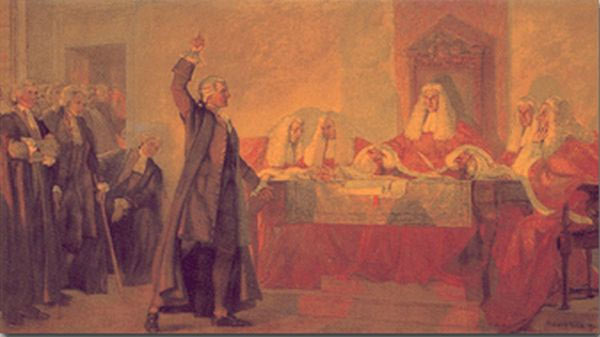This page provides the text and interpreted text of the 4th Amendment of the United States Constitution. It is part of our interactive Constitution.

Patriot James Otis challenging Parliament over its search and seizure laws |
What does it Say?
The right of the people to be secure in their persons, houses, papers, and effects, against unreasonable searches and seizures, shall not be violated, and no warrants shall issue, but upon probable cause, supported by oath or affirmation, and particularly describing the place to be searched, or the person or things to be seized.
What does it Mean?
The Fourth Amendment guarantees that citizens will not be subjected to unreasonable invasions of personal privacy such as unlawful searches of their person or home, or seizures of individuals, property or items within that property by the government or government agency unless there is a probable cause (compelling reason) that includes exactly who or what is to be searched or seized. In the case of probable cause, the search and or seizure must be granted by a judge or magistrate, who gives permission to officials in the form of a warrant.
|
|
|
|
Advertisement

Remove ad